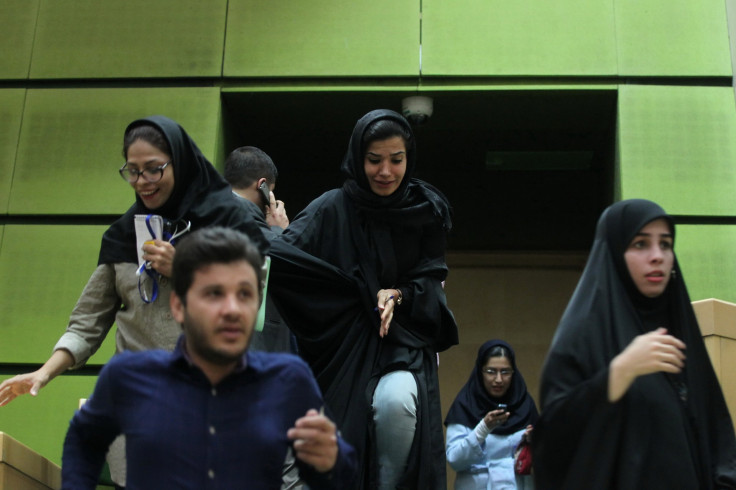Iran’s Revolutionary Guard Blames Donald Trump’s Saudi Arabia Visit For Tehran Terror Attacks

In one of the major terror attacks in Iran, suicide bombers and gunmen attacked the Iranian parliament and Ayatollah Khomeini's mausoleum in Tehran on Wednesday, which killed at least 13 people. The twin attacks were claimed by the Islamic State group, media reports said.
A statement, as reported by Financial Times, from Iran's Islamic Revolutionary Guard Corps (IRGC) linked the attacks to U.S. President Donald Trump's visit last month to Saudi Arabia where he spoke of isolating Iran for fueling "the fires of sectarian conflict and terror."
Read: Twin Terror Attacks Strike Iran's Capital
“This terrorist act took place a week after a joint meeting between the U.S. president and head of a reactionary regional country [Saudi Arabia] which has been a constant supporter of terrorism,” the statement said. “The fact ISIS claimed responsibility proves that they [Saudi Arabia] were involved in the brutal attack.”
“The Iranian nation sees this terrorist action that happened a week after the joint meeting of the U.S. president with the heads of one of the reactionary regional states that has constantly been supporting Takfiri terrorists as to be very meaningful, and believes that [Islamic State’s] acknowledging the responsibility indicates their complicity in this wild move,” the Washington Times reported citing the IRGC statement.
Hours after the attacks, a condolence statement was issued by the Trump administration, which called Iran the leading state sponsor of terrorism.
The State Department too issued a statement: “The United States condemns the terrorist attacks in Tehran today. The depravity of terrorism has no place in a peaceful, civilized world.”
Mohammad Javad Zarif, Foreign Minister Of Iran, tweeted late Wednesday, stating he found the White House Statement in response to the Iran terror attacks ‘repugnant’ and that the people of his nation reject a fake show of friendship.
Repugnant WH statement & Senate sanctions as Iranians counter terror backed by US clients.Iranian people reject such US claims of friendship
— Javad Zarif (@JZarif) June 8, 2017
Soon after the attacks when Iran blamed Saudi Arabia for it, the Sunni nation denied doing so. Foreign Minister Adel al-Jubeir, speaking in Germany, said he did not know who was responsible and that "we condemn terrorist attacks anywhere they occur," the New York Times reported.
The attacks have further strained the relations between Riyadh and Tehran amid their struggle to control the Gulf and influence the wider Islamic world. Additionally, the attacks came days after Riyadh and other Muslim nations cut off ties with Qatar, blaming it for backing Iran and militant groups, Reuters reported.
In Wednesday's strikes, the assailants targeted guards, cleaners, and employees of the administrative and finance sections, but could not get near the Parliament chamber itself, The Tehran Times editor Mohammad Ali Saki told the New York Times in a phone interview.
He also said the attackers were armed with AK-47s and hand grenades and wore what appeared to be explosive vests.
Another witness, Mohammed Abasi, who is a photographer and had arrived at the scene at the time of the attacks said he saw security forces firing at assailants from outside. There were some reporters and photographers covering the Parliament session stuck inside, waiting to get rescued, Abasi told the Times.
© Copyright IBTimes 2024. All rights reserved.






















